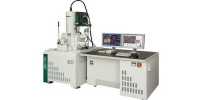The phrases “it’s not rocket science” and “it’s not brained surgery” are commonly used to describe jobs that any ordinary person might do; however, a new study reveals that these old adages may be inaccurate.
The latest research, which appears in The BMJ’s Christmas edition, claims that neurosurgeons and aerospace engineers are no smarter than the average population and that they may give unwarranted credit for their mental ability.
Patients in need of brain surgery should continue to seek out qualified doctors rather than asking a friend to try their hand at the task, while these findings do suggest that one does not need to be particularly brilliant to pursue the field. Similarly, given the correct instruction, many of us would be able to learn rocket science.
To arrive at these results, the researchers used Cognitron’s Great British Intelligence Test, which consists of a series of standardized tasks, to test the intelligence of 329 aerospace engineers and 72 neurosurgeons. Memory, spatial problem solving, semantic problem solving, mental manipulation and attention, problem-solving speed, and memory recall speed are among the six domains of cognition that may examine using these tasks.
Overall, neurosurgeons outperformed aerospace engineers in terms of semantic problem solving, whereas rocket scientists outperformed brain surgeons in terms of mental manipulation and attention. In the four other categories, the two professions are evenly balanced.
The researchers then compared the results of their participants to those of 18,257 people in the general UK population and found no difference between them and aerospace engineers. In contrast, neurosurgeons showed better problem-solving capabilities but worse memory recall rates than the average British person or lass. According to the authors of the study, brain surgeons’ exceptional problem-solving speed may be due to the “fast-paced nature of neurosurgery, which attracts people with a pre-existing flare for quick processing.”
As a result, they suggest that the phrase “it’s not brain surgery” may be suitable when referring to problems that do not demand quick thinking, but not when referring to other qualities of intelligence.
“It is probable that both neurosurgeons and aeronautical engineers are unduly placed on a pedestal,” the researchers speculate in response to their results.” “It might be more suitable to say, ‘It’s a walk in the park,’ or anything else unconnected to professions.” “It’s also plausible that other professions deserve to be on that pedestal,” they write, “and future research should seek to identify the most worthy group.”
















